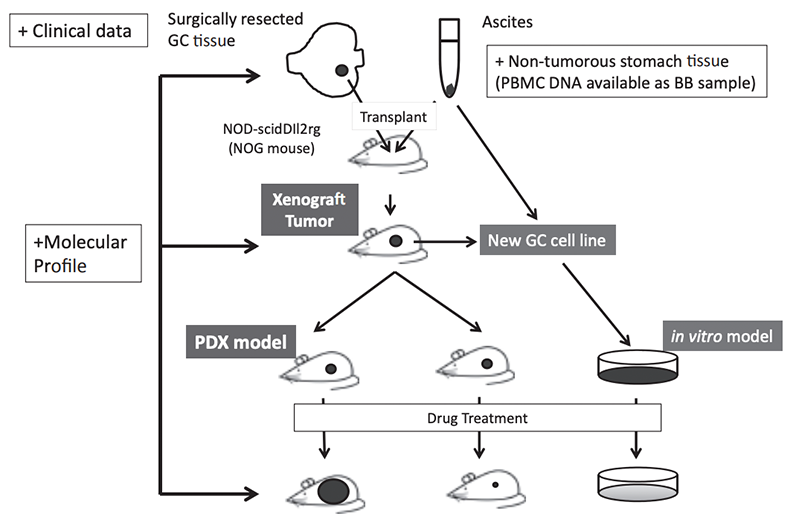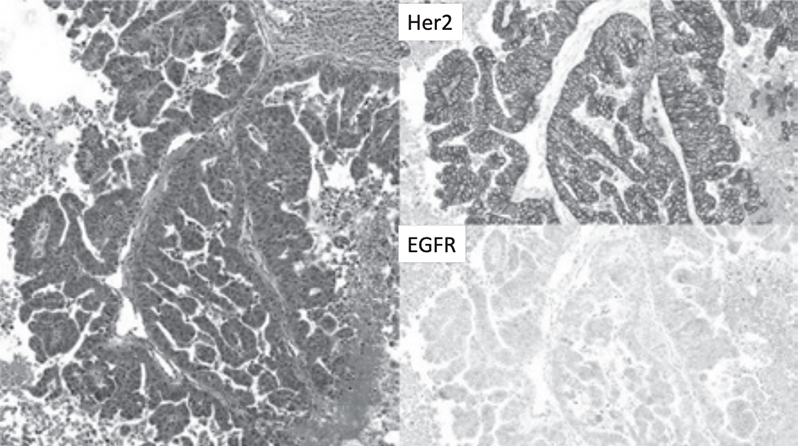Annual Report 2018
Division of Innovative Pathology and Laboratory Medicine (Kashiwa Campus)
Takeshi Kuwata, Masato Sugano, Shigeyuki Hasuo, Yuko Iwata
Introduction
The Division of Innovative Pathology and Laboratory Medicine (IPLM) was newly established at the Exploratory Oncology Research and Clinical Trial Center (EPOC) in 2016. The aim of the LPMN is to develop new diagnostic technologies, reagents, and devices in the pathology and laboratory medicine field.
The Team and What We Do
To achieve our goal, the activities of the IPLM closely collaborate with the Department of Pathology and Clinical Laboratories in the National Cancer Center Hospital East (NCCHE) and the Division of Pathology as well as other divisions in the EPOC.
Research activities
We are conducting the DEF (Discovery and Establishment of new biomarkers For gastric cancer) study, in which patient-derived xenografts (PDX) and cell lines have been established from surgically resected gastric cancers as well ascites. The aim of this study is to establish reliable bio-resources for supporting activities of new drug development in academia as well as pharmaceuticals. By March 2017, we had successfully established a total of 40 gastric cancer PDX and 31 novel gastric cancer cell lines (Figure 1 & 2).
Expression of selected receptor tyrosinekinases, HER2, EGFR and MET, have been evaluated in all PDX models. NGS-based gene mutation profiles are also added in some PDX models.

Figure 2. Pathological features of PDX


Education
We are participating in a weekly clinical conference with the Department of Pathology and Clinical Laboratories in the NCCHE. We also hold a biweekly progress research meeting in the EPOC as well as a monthly research meeting with the Division of Pathology in the EPOC. We presented our research data in scientific meetings including an annual meeting of the Japanese Society of Pathology and have published in wellrecognized scientific journals.
Future prospects
Our goal is to develop new diagnostic technologies, reagents and devices required for providing precision medicine to all cancer patients. For this purpose, we will use our experience at the NCCHE and conduct translational/reverse-translational research. In collaboration with the Department of Pathology and Clinical laboratories, we will also conduct a genetic testing division and provide a clinical sequence service in the NCCHE.
